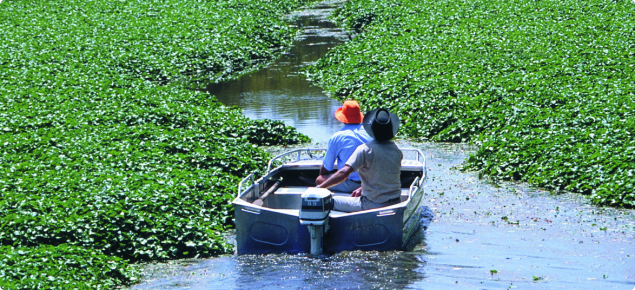Originally these weeds were introduced as ornamental plants for ponds because of their attractive flowers or foliage, or their hardiness and ability to grow quickly. The intentional and unintentional dumping of pond plants, water and unwanted fish has led to infestations of natural waterways. The spread of these weeds has also occurred through the sharing of cuttings or division of existing plants by friends and family. Birds often transport plant material through feeding and nesting, while boats can also spread the weeds when moving between different waterways.
Many of these aquatic weeds are now banned from sale in nurseries however they continue to be mistakenly sold at weekend markets, backyard sales and online websites and purchased by people unaware of the invasive nature of the plant. This article provides information on the most common aquatic plants which have become serious weeds in our waterways, and details ways in which you can help to reduce their spread.
Types of aquatic weeds
Aquatic weeds are typically categorised into four main groups depending on their growth habit. These are: emergent, free floating, floating leaf and submerged weeds.
Emergent weeds have both the stems and leaves above the waterline and are often growing on the fringes of ponds and waterways. Free floating weeds are not attached to the soil in any way but can still have root systems. Floating leaf weeds are rooted into the soil with long stems that stretch to the water surface where the leaves float. Submerged weeds are rooted into the soil and all parts of the plant are completely submerged under the water.
The following aquatic plants are declared weeds in WA and plants must be reported to the Department of Agriculture and Food, Western Australia (DAFWA) for eradication:

